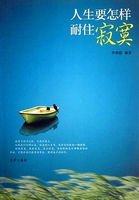A burly, grizzled elder, in greasy sea-stained garments, contrasting oddly with the huge gold chain about his neck, waddles up, as if he had been born, and had lived ever since, in a gale of wind at sea.The upper half of his sharp dogged visage seems of brick-red leather, the lower of badger's fur; and as he claps Drake on the back, and, with a broad Devon twang, shouts, "be you a coming to drink your wine, Francis Drake, or be you not?--saving your presence, my lord;" the lord high admiral only laughs, and bids Drake go and drink his wine; for John Hawkins, admiral of the port, is the patriarch of Plymouth seamen, if Drake be their hero, and says and does pretty much what he likes in any company on earth; not to mention that to-day's prospect of an Armageddon fight has shaken him altogether out of his usual crabbed reserve, and made him overflow with loquacious good-humor, even to his rival Drake.
So they push through the crowd, wherein is many another man whom one would gladly have spoken with face to face on earth.Martin Frobisher and John Davis are sitting on that bench, smoking tobacco from long silver pipes; and by them are Fenton and Withrington, who have both tried to follow Drake's path round the world, and failed, though by no fault of their own.The man who pledges them better luck next time, is George Fenner, known to "the seven Portugals,"Leicester's pet, and captain of the galleon which Elizabeth bought of him.That short prim man in the huge yellow ruff, with sharp chin, minute imperial, and self-satisfied smile, is Richard Hawkins, the Complete Seaman, Admiral John's hereafter famous and hapless son.The elder who is talking with him is his good uncle William, whose monument still stands, or should stand, in Deptford Church; for Admiral John set it up there but one year after this time; and on it record how he was, "A worshipper of the true religion, an especial benefactor of poor sailors, a most just arbiter in most difficult causes, and of a singular faith, piety, and prudence." That, and the fact that he got creditably through some sharp work at Porto Rico, is all I know of William Hawkins:
but if you or I, reader, can have as much or half as much said of us when we have to follow him, we shall have no reason to complain.
There is John Drake, Sir Francis' brother, ancestor of the present stock of Drakes; and there is George, his nephew, a man not overwise, who has been round the world with Amyas; and there is Amyas himself, talking to one who answers him with fierce curt sentences, Captain Barker of Bristol, brother of the hapless Andrew Barker who found John Oxenham's guns, and, owing to a mutiny among his men, perished by the Spaniards in Honduras, twelve years ago.
Barker is now captain of the Victory, one of the queen's best ships; and he has his accounts to settle with the Dons, as Amyas has; so they are both growling together in a corner, while all the rest are as merry as the flies upon the vine above their heads.
But who is the aged man who sits upon a bench, against the sunny south wall of the tavern, his long white beard flowing almost to his waist, his hands upon his knees, his palsied head moving slowly from side to side, to catch the scraps of discourse of the passing captains? His great-grandchild, a little maid of six, has laid her curly head upon his knees, and his grand-daughter, a buxom black-eyed dame of thirty, stands by him and tends him, half as nurse, and half, too, as showman, for he seems an object of curiosity to all the captains, and his fair nurse has to entreat again and again, "Bless you, sir, please now, don't give him no liquor, poor old soul, the doctor says." It is old Martin Cockrem, father of the ancient host, aged himself beyond the years of man, who can recollect the bells of Plymouth ringing for the coronation of Henry the Eighth, and who was the first Englishman, perhaps, who ever set foot on the soil of the New World.There he sits, like an old Druid Tor of primeval granite amid the tall wheat and rich clover crops of a modern farm.He has seen the death of old Europe and the birth-throes of the new.Go to him, and question him; for his senses are quick as ever; and just now the old man seems uneasy.
He is peering with rheumy eyes through the groups, and seems listening for a well-known voice.
"There 'a be again! Why don't 'a come, then?""Quiet, gramfer, and don't trouble his worship.""Here an hour, and never speak to poor old Martin! I say, sir"--and the old man feebly plucks Amyas's cloak as he passes."I say, captain, do 'e tell young master old Martin's looking for him.""Marcy, gramfer, where's your manners? Don't be vexed, sir, he'm a'most a babe, and tejous at times, mortal.""Young master who?" says Amyas, bending down to the old man, and smiling to the dame to let him have his way.
"Master Hawkins; he'm never been a-near me all day."Off goes Amyas; and, of course, lays hold of the sleeve of young Richard Hawkins; but as he is in act to speak, the dame lays hold of his, laughing and blushing.
"No, sir, not Mr.Richard, sir; Admiral John, sir, his father; he always calls him young master, poor old soul!" and she points to the grizzled beard and the face scarred and tanned with fifty years of fight and storm.
Amyas goes to the Admiral, and gives his message.
"Mercy on me! Where be my wits? Iss, I'm a-coming," says the old hero in his broadest Devon, waddles off to the old man, and begins lugging at a pocket."Here, Martin, I've got mun, I've got mun, man alive; but his Lordship keept me so.Lookee here, then! Why, I do get so lusty of late, Martin, I can't get to my pockets!"And out struggle a piece of tarred string, a bundle of papers, a thimble, a piece of pudding-tobacco, and last of all, a little paper of Muscovado sugar--then as great a delicacy as any French bonbons would be now--which he thrusts into the old man's eager and trembling hand.















